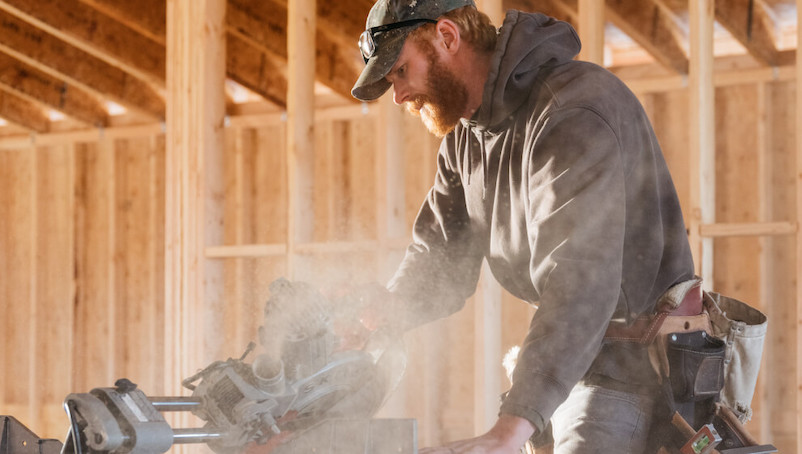7 common construction business lawsuits
For construction businesses, here are some of the most common triggers for legal action.
1. Accidents and injuries
Construction workers know there are many ways to get hurt on a job site. When someone gets injured—whether that’s a worker, a client, a vendor or even a bystander—there’s a lot to consider in deciding who is at fault and should be held liable.
2. Property damage
Accidents happen. And this is especially true during construction. Property damage as a result of construction can be immediate—like a broken piece of art or a smashed window.
But long term defect claims from a construction job can result in damages that may not be immediately obvious, such as foundation cracks years after a project. In cases like these, lawsuits can be filed after the fact not only to cover repair costs, but also to pay for harm caused by the damage, like loss of use.
3. Breach of contract
“Breach of contract” as a threat comes up frequently in construction businesses. In short, it just means that if you are accused of not fulfilling your end of a contractual agreement, the other party could sue, whether that be a client or a vendor.
4. Payment disputes
Payment disputes can also be a common cause of construction lawsuits. They can arise from a number of disagreements over issues including scope of work, quality of work, contract terms and payment schedules.
5. Discrimination
Discrimination suits can originate from employees or customers. Existing employees (or job candidates) can file a lawsuit if they feel discriminated against on the basis of such things as race, religion, sex, age and more. Similarly, if a business refuses to serve a customer of a protected class, they can be sued.
6. Workplace harassment
Harassment is unwelcome conduct on the basis of a protected class. It doesn’t have to mean physical harassment like an assault—though, of course, that is harassment. Activities like offensive jokes or name calling also qualify as harassment.
7. Wrongful termination
If one of your workers believes they were fired without cause, they could file a lawsuit against you.
4 tips to help prepare in case of a lawsuit
Hopefully you will never face a lawsuit, but it never hurts to prepare. To protect your business, keep these tips in mind. Also, consult with a licensed legal professional for specific advice for your business.
1. Separate personal assets from your business assets
If your business structure is set up as a sole proprietorship, you may want to consider incorporating as a limited liability company (LLC) instead. Doing so can effectively create legal separation between business and personal assets. If you are sued, this separation can help protect your personal assets like bank accounts or your house.
Learn more: How to change from sole proprietorship to LLC (and 3 signs you should)
2. Get insurance coverage tailored for your construction business
Business insurance is common in the construction industry because it transfers some risk away from your business over to the insurance company.
General liability for construction is the small business insurance that many construction businesses buy first. This type of coverage can help cover costs if you or one of your employees is accused of causing an injury or damaging property.
Errors & omissions insurance (also known as professional liability insurance) is also a common small business coverage for construction companies. It can help to pay for alleged work oversights that cause a client a financial loss.
For example, if you have a client that claims that you didn’t deliver the services you said you’d provide, they can ask that you pay for losses. Even if the claim is inaccurate, you could still be held responsible. But professional liability coverage can help cover costs to fix the problem and protect your business.
You might be required to have workers’ compensation insurance to obtain your construction trade license. This coverage can also help protect you from liability lawsuits if an employee or subcontractor gets injured on the job.
3. Maintain accurate records
Keep track of signed agreements and other communications, including emails and dated notes from important phone calls. This documentation creates a useful paper trail that can help clarify details of your business transactions.
If you’re involved in a lawsuit, your lawyer is going to want to see these records to see how the situation escalated and what steps you took to try to resolve the problem. Consider setting up a document management system to help you stay organized.
4. Be proactive about finding legal counsel
It’s better to have a lawyer on deck than to scramble to find one after you’ve been sued. Legal counsel can also provide you with more proactive advice to avoid lawsuits in the first place.
Seek out lawyers who have expertise working for construction businesses. Many small businesses keep a lawyer on retainer for helpful legal advice on other small business activities like hiring employees, reviewing important documents and maintaining compliance.
Construction checklist: What to do if you’re sued
Getting sued is stressful and can take up valuable time that would be better spent securing contracts, working jobs and managing your business.
If your construction business faces legal action, make sure to take these steps:
1. Call your lawyer
Your first move should be to call your business lawyer. They will be able to steer you through the process with the advice that comes with experience.
2. Reach out to your insurance company
Inform your insurance provider about what has happened, providing details as necessary. Your insurer should be able to help confirm whether your insurance policy will be able to help protect you.
3. Gather documentation
Collect and organize all the documentation you have related to the case, including signed contracts, email communications and notes (which hopefully you’ve been staying on top of all along!).
Of course every lawsuit is different, but in many cases legal disputes end in a settlement, not a courtroom.
If your lawsuit does proceed to court, legal fees can add up, putting a financial strain on your business—even if you aren’t at fault. But, with the right protection and planning, your business can survive a lawsuit.





